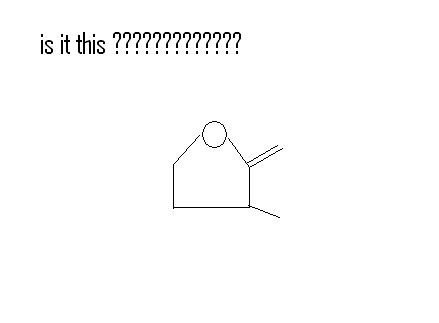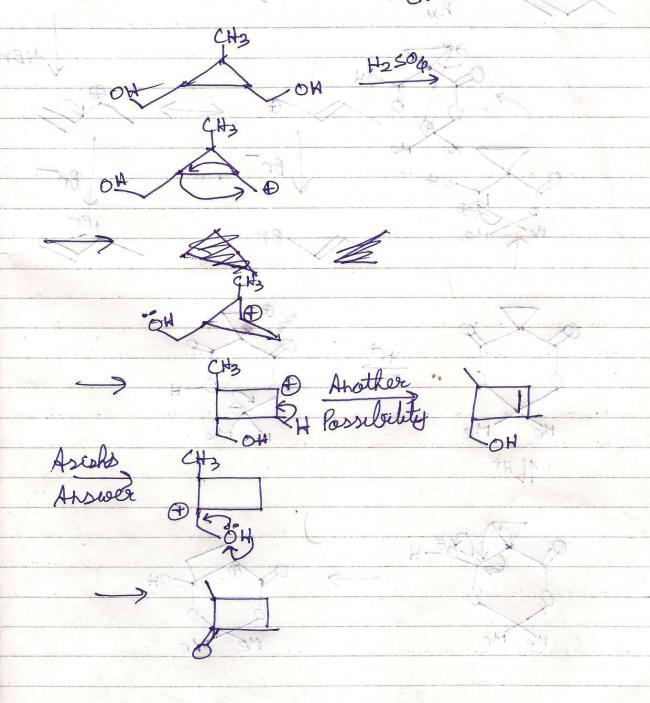Q1 is dieckman cyclization naa ???so ans should be b na ??
plz confirm someone
1) C
2) it is HVZ first rxn .....so finally a aldehyde...but tht gives b,c,d???
3)
Q1 is dieckman cyclization naa ???so ans should be b na ??
plz confirm someone
3. 
is it this?
2. i feel A
@rickde: aldehydes are easily oxidised to acids.. which is not neutral so i looked for a case where ketone is formed
1. C...
@eure: how'll u get cyclohexane carboxylic acid with B?? with C it will cyclise
@asish...ans 2,3 wrong
i dont have ans for Q1...but where am i commiting mistake ??
eure for intramolecular dieckmann condensation, for the ester groups to form six membered ring, there has to be a longer carbon chain than the one in your ans, don't you think?
I think asish's answer is correct for the the last question...mera bhi yahi ans aa raha hai. Another possibility is that in the absence of a nucleophile, a proton is lost to form a double bond on the spot.

answer for the second can be both c and d ....
on oxidation we get a ketone if it is =R2C and acid if it is =RCH ... since we need to get a neutral compound on oxidation it should be =R2C .. which you will get with c and d ....
Is this explanation correct ??
@Pritish...go on with that another posibility part...i remember there was a similar question...in that there was CH2-OH grp in place of CH3 and the answer to that question was benzene....so double bond in the ring shud be formed in this question too..
btw i am getting this answer
Question 3..
same question has been discussed here b4
http://www.targetiit.com/iit-jee-forum/posts/whats-the-product-2071.html
and I agree with Sri's explanation..
ya it was discussed before..but no conclusion was reached .....and i dont think ans given can be wrong...ahvent seen any wrong answers there..